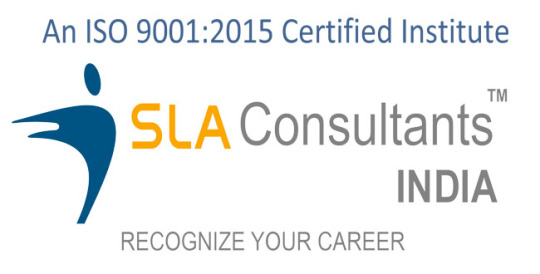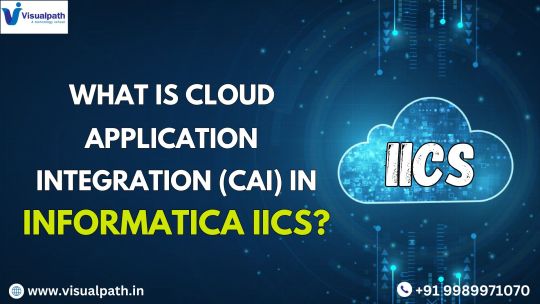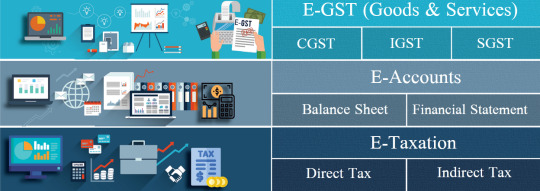#SAP E Invoicing
Explore tagged Tumblr posts
Text

Key Features of E-Invoice Integration
Taxpayers will continue to create their GST invoices on their own ERP Systems.
These invoices will now be reported to ‘Invoice Registration Portal (IRP)’
IRP returns signed e-invoice with a unique ‘Invoice Reference Number (IRN)’ along with a QR Code.
Then, the invoice can be issued to the receiver (with QR Code).
A GST invoice will be valid only with a valid IRN
1 note
·
View note
Text
Navigating the GST E-Invoice Mandate: A Practical Guide for SAP Users
As business compliance rapidly evolves, India’s Goods and Services Tax (GST) mandated electronic invoices are an integral component. Over time, this system was implemented to simplify business operations while increasing tax compliance; beginning October 1st, 2020, electronic invoicing became mandatory for companies with over INR 500 crore turnover during 2019-2020. This blog discusses how SAP…

View On WordPress
0 notes
Text
SAP DRC e-invoicing | TJC Group
Explore SAP DRC e-invoicing with TJC Group as your trusted third-party. Discover insights and solutions for efficient e-reporting compliance. Learn more at TJC Group's comprehensive guide.
0 notes
Text
Best Erp system in Saudi arabia

OrionEdge stands at the forefront as one of the best ERP system providers in Saudi Arabia, offering tailored solutions designed to elevate business operations across diverse sectors. Their ERP systems integrate essential functions such as finance, human resources, supply chain, and customer relationship management into a unified platform, enhancing efficiency and productivity.
What sets OrionEdge apart is its commitment to delivering scalable and customizable ERP solutions that align with local regulations and industry standards. By leveraging their expertise, businesses in Saudi Arabia can streamline processes, optimize resource allocation, and achieve significant cost savings. OrionEdge's ERP systems not only empower organizations to make informed decisions with real-time data insights but also foster growth through enhanced operational agility.
With a dedicated team of ERP specialists and a proven track record of successful implementations, OrionEdge ensures seamless integration and ongoing support. Whether you're looking to improve financial management, streamline logistics, or enhance customer engagement, OrionEdge provides robust ERP solutions that empower businesses to thrive in Saudi Arabia's competitive landscape. Experience the transformative impact of OrionEdge's best ERP systems and unlock your business's full potential with tailored solutions designed for success.
1 note
·
View note
Text
E-invoicing System- Digital Invoice
ntegrated E-invoicing System for SAP ECC/S4 HANA system users for India
OptiE-invoice is a ready product that meets all of the functionality required by the government for e-invoicing under GST. It allows for seamless generation of e-invoices through automatic, real-time online integration with the government portal (IRP) using secure communication. It is built using SAP technologies and is an add-on with tight integration for end-to-end e-invoicing. There is no need for file upload/download, additional hardware, servers, or administration. The user interface is familiar, making adoption easier. It also includes MIS reports and dashboards and offers assurance of support and updates for any changes from the government.
1 note
·
View note
Text
E-Invoicing using SAP Business One
E-invoicing in SAP refers to the electronic exchange of invoice data between business partners using SAP software. It involves the creation, transmission, and processing of invoices in a digital format, which eliminates the need for paper-based processes and reduces errors and processing times. E-invoicing in SAP can improve efficiency, reduce costs, and enhance compliance with regulatory requirements.
0 notes
Text
What are the benefits of e-invoicing over traditional invoices?
E-invoicing offers a significant upgrade over traditional paper-based invoices, streamlining processes, enhancing compliance, and improving cash flow. Here are the key benefits:
🔹 Error Reduction
Manual data entry often leads to typos, miscalculations, and discrepancies. With e-invoicing, automated workflows minimize errors, ensuring accuracy and consistency.
🔹 Faster Payments & Better Cash Flow
Traditional invoicing involves delays due to printing, mailing, and manual processing. E-invoices are sent instantly, leading to quicker approvals and faster payments.
🔹 Cost Savings
No more expenses on printing, postage, and physical storage. Businesses save both time and money by going digital with e-invoicing.
🔹 Real-Time Compliance & Tax Transparency
With Malaysia’s National E-Invoicing Initiative, businesses must comply with new LHDN (HASiL) regulations. E-invoicing ensures real-time tax reporting and prevents fraud, keeping businesses audit-ready.
🔹 Seamless Business Integration
E-invoices integrate directly into accounting systems like SAP & Infor, providing real-time tracking of invoices and payments.
Advintek is a trusted Peppol Certified Access Point Provider that simplifies Malaysia’s e-invoicing compliance for businesses of all sizes.
✅ IRB-Compliant E-Invoicing – Stay ahead of LHDN requirements effortlessly. ✅ Automated & Paperless – Reduce errors and operational costs. ✅ Smooth System Integration – Works with existing accounting tools like SAP & Infor. ✅ Customer-Centric Approach – Personalized support for easy adoption.
Worried about e-invoicing compliance? 🤔 Let Advintek handle the complexity while you focus on growing your business!
💡 Get a Free Consultation Today!
https://einvoice.advintek.com.my/
0 notes
Text
GST Course in Delhi, "Learn Direct Tax Code 2025" 110075, NCR by SLA. GST and Accounting Institute, Taxation and ERP Tally Prime Institute in Delhi, Noida, "Free SAP FICO till 31 March 2025" [ Learn New Skills of Accounting & SAP Finance for 100% Job] in SBI Bank
Mastering GST Certification Course by SLA Consultants India
Learn Comprehensive Guide to GST Returns by CA Trainer of SLA Institute
The Goods and Services Tax (GST) is a crucial aspect of India’s indirect tax system, requiring businesses to comply with various return filings. Understanding these returns is essential for accurate tax reporting and avoiding penalties. In this SLA Institute blog, we will cover the key GST returns, their importance, and the consequences of late filing. GST Course in Delhi
Understanding GST Returns
GST returns are periodic statements that registered taxpayers must file to declare their tax liabilities and claim input tax credits. Here’s a detailed look at the various GST returns:
1. GSTR-1: Outward Supplies Details
GSTR-1 is a monthly or quarterly return that captures details of outward supplies of goods and services. It helps the government track sales transactions and input tax credit claims.
“Get Live Practical Classes on GST Portal in SLA Consultants India”
GST Course in Delhi, "Learn Direct Tax Code 2025" 110075, NCR by SLA. GST and Accounting Institute, Taxation and ERP Tally Prime Institute in Delhi, Noida, "Free SAP FICO till 31 March 2025" [ Learn New Skills of Accounting & SAP Finance for 100% Job] in SBI Bank.
2. GSTR-2A & GSTR-2B: Auto-Generated Invoices for Recipients
GSTR-2A is an auto-drafted statement reflecting invoices uploaded by suppliers. Taxpayers can use this to verify input tax credits.
GSTR-2B is a static statement that provides a summary of eligible and ineligible input tax credits, helping taxpayers in ITC reconciliation.
“Get Live Practical Classes on GST Portal by CA from SLA Consultants India”
3. GSTR-2: Details of Inward Supplies (Currently Suspended)
GSTR-2 was designed to capture inward supplies of a taxpayer, but it has been suspended since the introduction of GSTR-2A and GSTR-2B.
4. GSTR-3 & GSTR-3B: Monthly Tax Summary & Payment
GSTR-3 (Currently Suspended) was meant to be a monthly tax return summarizing sales, purchases, and tax liabilities.
GSTR-3B is a simplified monthly return where taxpayers report summarized tax liabilities and input tax credits. It is mandatory for all regular taxpayers.
5. GSTR-4: Composition Scheme Taxpayers
GSTR-4 is an annual return filed by businesses under the composition scheme, which allows small businesses to pay a fixed percentage of turnover as tax.

6. GSTR-5 & GSTR-5A: Non-Resident & OIDAR Service Providers
GSTR-5 is for non-resident taxable persons who conduct business in India.
GSTR-5A is for Online Information and Database Access or Retrieval (OIDAR) service providers supplying services to unregistered Indian consumers.
7. GSTR-6: Input Service Distributor (ISD)
GSTR-6 is filed by Input Service Distributors to distribute input tax credit among their branches. GST Training Course in Delhi
8. GSTR-7: Tax Deduction at Source (TDS)
GSTR-7 is filed by entities required to deduct TDS under GST, mainly government departments and large businesses.
9. GSTR-8: E-Commerce Operators
E-commerce operators file GSTR-8 to report tax collected at source (TCS) on transactions conducted through their platforms.
10. GSTR-9, GSTR-9A & GSTR-9C: Annual Returns & Audit
GSTR-9 is the annual return summarizing all monthly/quarterly returns filed during the year.
GSTR-9A is for composition taxpayers but has been waived for certain years.
GSTR-9C is a reconciliation statement and audit report for businesses with an annual turnover exceeding ₹5 crore.
“Get Live Practical GST Certification Course in Delhi on GST Portal in SLA Institute”
11. GSTR-10: Final Return for Canceled GST Registration
GSTR-10 is filed by taxpayers whose GST registration has been canceled or surrendered, providing final tax details.
12. GSTR-11: Special Returns for UIN Holders
GSTR-11 is filed by foreign diplomatic missions and embassies to claim GST refunds on purchases made in India.
Consequences of Late Filing of GST Returns
Filing GST returns after the due date attracts penalties and interest:
Late Fee: ₹50 per day (₹25 CGST + ₹25 SGST) for normal taxpayers, and ₹20 per day (₹10 CGST + ₹10 SGST) for NIL returns.
Interest: 18% per annum on the outstanding tax liability.
Restriction on ITC Claims: Late filers may lose access to input tax credits.
Suspension of GST Registration: Continuous non-compliance may lead to suspension or cancellation of GST registration. GST Training Institute in Delhi
Conclusion
Staying compliant with GST return filing is crucial for businesses to avoid penalties and ensure smooth tax operations. Taxpayers should stay updated with GST norms, maintain proper records, and file returns on time to remain compliant. If needed, professional assistance can help in managing GST efficiently.

For more insights on GST compliance, keep following our blog!
GST(Goods and Services Tax) Training Course Modules Module 1 - GST- Goods and Services Tax- By Chartered Accountant- (Indirect Tax) Module 2 - Income Tax/TDS - By Chartered Accountant (Direct Tax) Module 3 - Finalization of Balance sheet/ preparation of Financial Statement- By Chartered Accountant Module 4 - Banking and Finance Instruments - By Chartered Accountant Module 5 - Customs / Import and Export Procedures - By Chartered Accountant
0 notes
Text

How To Become a Certified GST Practitioner? Step Step by Guide
GST Course: A Complete Guide
1. Introduction to GST Course (GST कोर्स की जानकारी)
Goods and Services Tax (GST) is one of the most important tax reforms in India. A GST Course helps students and professionals understand GST laws, compliance, and filing procedures. यह कोर्स उन सभी लोगों के लिए फ़ायदेमंद है जो कराधान (Taxation) के क्षेत्र में करियर बनाना चाहते हैं।
2. Why Learn GST? (GST सीखना क्यों ज़रूरी है?)
GST knowledge is essential for finance professionals, business owners, and tax consultants. Here are the key reasons to learn GST:
· High demand: Businesses require GST experts for tax filing.
· Career growth: Enhances job opportunities in taxation and finance.
· Freelancing opportunities: Helps in starting a career as an independent GST consultant.
· Entrepreneurship benefits: Assists business owners in handling tax compliance.
3. Eligibility Criteria for GST Course (योग्यता मानदंड)
To enroll in a GST course, the following criteria should be met:
· Educational Qualification: Graduation (B.Com, BBA, M.Com, MBA) preferred.
· Working Professionals: Accountants, tax consultants, and business owners.
· Basic Knowledge: Understanding of accounting and taxation is an advantage.
4. Duration and Fees of GST Course (अवधि और शुल्क)
The duration and fees of GST courses vary depending on the institute:
· Short-term courses: 1-3 months
· Diploma courses: 6 months to 1 year
· Fees: ₹5,000 - ₹30,000 (depending on the institute and course type)
5. Syllabus of GST Course (GST कोर्स का सिलेबस)
The syllabus covers various topics related to GST laws, filing, and compliance:
Core Modules:
· Introduction to GST (GST की मूलभूत जानकारी)
· GST Registration Process (जीएसटी पंजीकरण प्रक्रिया)
· GST Return Filing (GST रिटर्न फ़ाइल करना)
· Input Tax Credit (ITC) (इनपुट टैक्स क्रेडिट)
· GST Invoicing & Documentation (GST इनवॉइसिंग और दस्तावेज़ीकरण)
· E-way Bill System (ई-वे बिल प्रणाली)
· GST Compliance & Audit (GST अनुपालन और ऑडिट)
· Practical Training (व्यावहारिक प्रशिक्षण)
6. Career Opportunities After GST Course (करियर के विकल्प)
Completing a GST course opens up various career opportunities:
· GST Practitioner (जीएसटी प्रैक्टिशनर)
· Tax Consultant (कर सलाहकार)
· Accountant (मुनीम / लेखाकार)
· GST Compliance Officer (जीएसटी अनुपालन अधिकारी)
· Business GST Consultant (व्यापारिक जीएसटी सलाहकार)
· Government Jobs (सरकारी नौकरियां)
7. Salary Expectations (वेतन की संभावनाएं)
After completing a GST course, salary depends on experience and job role:
· Entry-level Salary: ₹15,000 - ₹30,000 per month
· Mid-level Salary: ₹30,000 - ₹50,000 per month
· Experienced Professionals: ₹50,000 - ₹1,00,000 per month
8. Best Institutes for GST Course (सर्वश्रेष्ठ संस्थान)
Many reputed institutes offer GST courses in India:
· National Institute of Financial Markets (NIFM)
· Institute of Chartered Accountants of India (ICAI)
· Tally Academy
· EduPristine
· IIM Skills
9. Online GST Courses (ऑनलाइन GST कोर्स)
Online courses provide flexibility and affordability. Some popular online platforms include:
· Udemy (Affordable courses with certification)
· Coursera (University-backed courses)
· Skill India (Government-certified courses)
· Tally Education (GST with Tally specialization)
10. Conclusion (निष्कर्ष)
A GST course is highly beneficial for students, accountants, and business owners. It provides in-depth knowledge of taxation and helps in career growth. यदि आप फ़ाइनेंस और टैक्सेशन में करियर बनाना चाहते हैं, तो यह कोर्स आपके लिए बहुत उपयोगी साबित होगा।
Free Accounting Courses with Certificate ,
Income Tax Course,
Diploma courses after 12th Commerce ,
Courses after b com ,
Diploma in financial accounting ,
SAP fico Course ,
Accounting and Taxation Course ,
GST Course in Delhi ,
Computer Course in Delhi ,
Payroll Management Course,
Tally Course ,
One year course ,
Advanced Excel Course ,
Computer ADCA Course in Delhi
Data Entry Operator Course in Delhi,
diploma in banking finance ,
stock market trading Course in Delhi,
six months course
IPA Blog
journal entries questions with answers
0 notes
Text
How to become a certified GST Practitioner ? Step-by-Step Guide
GST Course: A Complete Guide
1. Introduction to GST Course (GST कोर्स की जानकारी)
Goods and Services Tax (GST) is one of the most important tax reforms in India. A GST Course helps students and professionals understand GST laws, compliance, and filing procedures. यह कोर्स उन सभी लोगों के लिए फ़ायदेमंद है जो कराधान (Taxation) के क्षेत्र में करियर बनाना चाहते हैं।
2. Why Learn GST? (GST सीखना क्यों ज़रूरी है?)
GST knowledge is essential for finance professionals, business owners, and tax consultants. Here are the key reasons to learn GST:
· High demand: Businesses require GST experts for tax filing.
· Career growth: Enhances job opportunities in taxation and finance.
· Freelancing opportunities: Helps in starting a career as an independent GST consultant.
· Entrepreneurship benefits: Assists business owners in handling tax compliance.
3. Eligibility Criteria for GST Course (योग्यता मानदंड)
To enroll in a GST course, the following criteria should be met:
· Educational Qualification: Graduation (B.Com, BBA, M.Com, MBA) preferred.
· Working Professionals: Accountants, tax consultants, and business owners.
· Basic Knowledge: Understanding of accounting and taxation is an advantage.
4. Duration and Fees of GST Course (अवधि और शुल्क)
The duration and fees of GST courses vary depending on the institute:
· Short-term courses: 1-3 months
· Diploma courses: 6 months to 1 year
· Fees: ₹5,000 - ₹30,000 (depending on the institute and course type)
5. Syllabus of GST Course (GST कोर्स का सिलेबस)
The syllabus covers various topics related to GST laws, filing, and compliance:
Core Modules:
· Introduction to GST (GST की मूलभूत जानकारी)
· GST Registration Process (जीएसटी पंजीकरण प्रक्रिया)
· GST Return Filing (GST रिटर्न फ़ाइल करना)
· Input Tax Credit (ITC) (इनपुट टैक्स क्रेडिट)
· GST Invoicing & Documentation (GST इनवॉइसिंग और दस्तावेज़ीकरण)
· E-way Bill System (ई-वे बिल प्रणाली)
· GST Compliance & Audit (GST अनुपालन और ऑडिट)
· Practical Training (व्यावहारिक प्रशिक्षण)
6. Career Opportunities After GST Course (करियर के विकल्प)
Completing a GST course opens up various career opportunities:
· GST Practitioner (जीएसटी प्रैक्टिशनर)
· Tax Consultant (कर सलाहकार)
· Accountant (मुनीम / लेखाकार)
· GST Compliance Officer (जीएसटी अनुपालन अधिकारी)
· Business GST Consultant (व्यापारिक जीएसटी सलाहकार)
· Government Jobs (सरकारी नौकरियां)
7. Salary Expectations (वेतन की संभावनाएं)
After completing a GST course, salary depends on experience and job role:
· Entry-level Salary: ₹15,000 - ₹30,000 per month
· Mid-level Salary: ₹30,000 - ₹50,000 per month
· Experienced Professionals: ₹50,000 - ₹1,00,000 per month
8. Best Institutes for GST Course (सर्वश्रेष्ठ संस्थान)
Many reputed institutes offer GST courses in India:
· National Institute of Financial Markets (NIFM)
· Institute of Chartered Accountants of India (ICAI)
· Tally Academy
· EduPristine
· IIM Skills
9. Online GST Courses (ऑनलाइन GST कोर्स)
Online courses provide flexibility and affordability. Some popular online platforms include:
· Udemy (Affordable courses with certification)
· Coursera (University-backed courses)
· Skill India (Government-certified courses)
· Tally Education (GST with Tally specialization)
10. Conclusion (निष्कर्ष)
A GST course is highly beneficial for students, accountants, and business owners. It provides in-depth knowledge of taxation and helps in career growth. यदि आप फ़ाइनेंस और टैक्सेशन में करियर बनाना चाहते हैं, तो यह कोर्स आपके लिए बहुत उपयोगी साबित होगा।
IPA OFFERS:-
Free Accounting Courses with Certificate ,
Income Tax Course,
Diploma courses after 12th Commerce ,
Courses after b com ,
Diploma in financial accounting ,
SAP fico Course ,
Accounting and Taxation Course ,
GST Course in Delhi ,
Computer Course in Delhi ,
Payroll Management Course,
Tally Course ,
One year course ,
Advanced Excel Course ,
Computer ADCA Course in Delhi
Data Entry Operator Course in Delhi,
diploma in banking finance ,
stock market trading Course in Delhi,
six months course in accounting
IPA Blog
journal entries questions with answers

0 notes
Text
Best IICS Online Training | Informatica in Hyderabad
Cloud Application Integration (CAI) in Informatica IICS
Introduction
Cloud Application Integration (CAI) in Informatica Intelligent Cloud Services (IICS) seamlessly integrates these applications and systems, ensuring smooth data flow, automation, and operational efficiency. This article explores CAI, its features, benefits, and use cases. In today's digital landscape, organizations rely on multiple cloud applications and on-premises systems to manage business processes efficiently. Informatica Training Online
What is Cloud Application Integration (CAI)?
Cloud Application Integration (CAI) is a comprehensive integration solution within Informatica IICS that enables real-time, event-driven, and batch-based integration between cloud and on-premises applications. It allows businesses to connect different applications using APIs, service orchestration, and process automation, eliminating data silos and improving communication between business-critical applications.

Key Features of Cloud Application Integration (CAI)
API-Based Integration: CAI allows businesses to create, publish, and manage APIs to integrate applications across different platforms.
Real-Time and Event-Driven Processing: Supports synchronous and asynchronous message processing to handle real-time data exchange.
Process Orchestration: Enables the design and automation of complex workflows with business logic. Informatica IICS Training
Pre-Built Connectors: Provides out-of-the-box connectors for popular cloud applications like Salesforce, SAP, Workday, AWS, and more.
Data Mapping and Transformation: Ensures seamless data flow with advanced data mapping and transformation capabilities.
Secure Integration: Supports authentication mechanisms such as OAuth, SAML, and API security policies to protect sensitive data.
Scalability and Flexibility: Adapts to growing business needs by scaling integration processes efficiently.
Benefits of Cloud Application Integration (CAI)
Enhanced Connectivity: Enables seamless communication between cloud and on-premises applications.
Improved Efficiency: Automates workflows, reducing manual intervention and operational overhead. Informatica Cloud Training
Better Data Visibility: Ensures accurate data synchronization across applications, improving decision-making.
Faster Time-to-Market: Accelerates integration processes, allowing businesses to deploy new applications and services quickly.
Cost Savings: Reduces IT infrastructure costs by leveraging cloud-based integration instead of traditional middleware solutions.
Increased Business Agility: Enables organizations to adapt quickly to changing business requirements with scalable integration solutions.
Use Cases of Cloud Application Integration (CAI)
CRM and ERP Integration: Synchronizing customer data between Salesforce and SAP to provide a unified customer experience.
E-commerce and Supply Chain Integration: Connecting Shopify or Magento with inventory management systems to streamline order processing.
HR Systems Integration: Automating employee onboarding by integrating Workday with internal HR applications.
Finance and Accounting: Connecting QuickBooks with enterprise finance systems to automate invoice and payment processing.
IoT and Big Data Integration: Aggregating IoT sensor data into cloud-based analytics platforms for real-time insights.
How CAI Works in Informatica IICS
Design: Users define integration workflows using the Informatica Cloud Designer, a low-code/no-code interface.
Connect: Utilize pre-built connectors or create APIs to integrate cloud and on-premises applications.
Orchestrate: Automate data workflows and manage business processes with drag-and-drop components.
Deploy: Publish APIs and execute integration workflows in real-time or batch mode. IICS Online Training
Monitor & Manage: Track integration processes using dashboards and logs, ensuring data integrity and performance optimization.
Conclusion
Cloud Application Integration (CAI) in Informatica IICS is a powerful tool for businesses to streamline their application connectivity and automate workflows efficiently. With its robust API-based integration, real-time processing, and process orchestration capabilities, CAI helps organizations enhance operational efficiency, improve data visibility, and drive business growth. As cloud adoption continues to rise, leveraging CAI ensures seamless and scalable integration for modern enterprises.
Visualpath is the Best Software Online Training Institute in Hyderabad. Avail complete Informatica Cloud Online Training worldwide. You will get the best course at an affordable cost.
Visit: https://www.visualpath.in/informatica-cloud-training-in-hyderabad.html
Visit Blog: https://visualpathblogs.com/category/informatica-cloud/
WhatsApp: https://www.whatsapp.com/catalog/919989971070/
#InformaticaTraininginHyderabad#IICSTraininginHyderabad#IICSOnlineTraining#InformaticaCloudTraining#InformaticaCloudOnlineTraining#InformaticaIICSTraining#InformaticaTrainingOnline#InformaticaCloudTraininginChennai#InformaticaCloudTrainingInBangalore#BestInformaticaCloudTraininginIndia#InformaticaCloudTrainingInstitute
0 notes
Text
SAP FICO
A comprehensive SAP FICO (Financial Accounting and Controlling) course typically covers a wide range of topics to provide a strong foundation in financial and management accounting processes within the SAP ERP system. Here's an overview of the topics you can expect:
1. Introduction to SAP FICO
Overview of SAP ERP and SAP FICO
Role of SAP FICO in business processes
Navigation and SAP GUI basics
Organizational structures in SAP FICO (Company Code, Business Area, Controlling Area, etc.)
2. Financial Accounting (FI
a. General Ledger (GL) Accounting
Chart of Accounts
GL Master Data
Posting and document management
Financial statement versions
b. Accounts Payable (AP)
Vendor master data
Invoice posting and payment processing
Automatic payment program
Vendor reporting
c. Accounts Receivable (AR)
Customer master data
Invoice creation and receipt processing
Dunning process and customer reporting
d. Bank Accounting
Bank master data setup
Electronic Bank Statement (EBS)
Bank reconciliation
e. Asset Accounting (AA)
Asset master data
Depreciation methods and posting
Asset transactions (acquisition, transfer, retirement)
f. Integration with Other Modules
Integration with MM (Materials Management)
Integration with SD (Sales and Distribution)
Integration with HR (Human Resources)
3. Controlling (CO)
a. Cost Element Accounting
Primary and secondary cost elements
Cost element categories
b. Cost Center Accounting
Cost center structure and master data
Allocation methods (distribution, assessment)
c. Internal Orders
Internal order types
Budgeting and tracking
d. Profit Center Accounting (PCA)
Profit center structure
Reporting and analysis
e. Product Costing
Cost object controlling
Product cost planning
Costing run
f. Profitability Analysis (CO-PA)
Account-based and costing-based CO-PA
Revenue and cost analysis
4. Key Configurations
Defining and assigning organizational units
Configuration of document types and number ranges
Automatic account determination
Tax settings and configuration
5. Reporting and Analysis
Standard SAP reports
Financial statement generation
Custom reports using Report Painter/Writer
6. Advanced Topics
SAP S/4HANA Finance overview (if included)
New GL functionality
Real-time integration of FI and CO
Migration from SAP ECC to S/4HANA
FIORI applications in SAP FICO
7. Practical Scenarios
Hands-on exercises in real-world scenarios
End-to-end business process demonstrations
Case studies and project simulations
This curriculum ensures that participants gain both theoretical knowledge and practical experience, preparing them for roles in SAP FICO implementation, support, and analysis.
Mail us on [email protected]
Website: Anubhav Online Trainings | UI5, Fiori, S/4HANA Trainings
youtube
0 notes
Text
SAP SD Career Roadmap: Skills, Certifications, and Opportunities
Are you considering beginning a career in SAP Sales and Distribution (SAP SD)? It has become a trending career since organizations worldwide started using SAP SD to carry out their sales and distribution process and to manage their customers. The demand for SAP SD professionals has seen an incredible rise. This blog will explore the roadmap to becoming a SAP SD expert, the skills you need, certifications that are going to earn you some credentials and validate your expertise, and opportunities open to you. Let’s dig in!
Understanding SAP SD and Its Relevance
SAP SD is one of the major modules of SAP ERP, that manages sales and distribution processes for executing its operations smoothly in order management, price determination, billing, and logistics. This module works with SAP MM (Materials Management) and SAP FICO (Finance and Controlling), which ultimately makes it an indispensable tool for an organization that wants its efficiency to enhance efficiency and also customer satisfaction.
With a growing focus on digital transformation and e-commerce, SAP SD professionals are pushing boundaries on innovation to help companies deal with rapidly changing market dynamics. If you have a passion for optimizing sales processes and customer service experiences, SAP SD is perfect career choice for you.
Skills Required for a Successful Career in SAP SD
A successful career in SAP's SD needs proper technical knowledge, basic ERP, and problem-solving skills. Here are the key competencies to focus on:
Technical Skills:
Expertise in configuring and customizing SAP SD.
Knowledge of essential processes within SAP SD, including:
Order-to-Cash cycle.
Pricing and billing.
Shipping and transportation.
Working knowledge of integration with other SAP modules, such as MM, FICO, and CRM.
Analytical Skills:
Ability to analyze business requirements and interpret them into SAP SD solutions.
Ability to troubleshoot system issues.
Business Knowledge:
A fair knowledge of sales and distribution processes, including contracts, invoicing, and credit management.
Knowledge of industry-specific processes and best practices.
Soft Skills:
Communicates and networks extremely well with stakeholders.
Problem-solving attitudes and the ability to adapt to innovative techniques in technology.
Certifications to Your Added Credibility
Certifications prove your skills and demonstrate your desire for professional growth within the field. Here are some basic ones to consider:
SAP Certified Application Associate – Sales and Distribution with SAP ERP:
If you're new to SAP SD, this certification will equip you with the fundamental concepts and configuration settings.
SAP Certified Application Associate – SAP S/4HANA Sales:
Maintaining a heavy focus on the latest S/4HANA technologies, this certification is one of the most sought-after in the industry.
Special Certifications:
Depending on your career path, think of including certifications in the line of SAP CRM or SAP SCM (Supply Chain Management).
Choosing the best SAP SD training in Pune a new educational hub of India will prepare to become a successful candidate for these certifications. Their expert instructions and hands-on projects will give you the confidence to excel in the examinations and practicals.
Career Opportunities of SAP SD
The options for a career as an SAP SD professional are far and wide, with various roles across multiple domains such as manufacturing, retail, logistics, and e-commerce. Lets have a look on Few career opportunities for SAP SD career.
SAP SD Consultant:
Work with clients to roll out and modify SAP SD solutions to meet their needs.
Expected Salary: 3.5 Lakhs to 13 Lakhs depending on the experience you have.
SAP SD Business Analyst:
Study business processes and introduce SAP SD solutions to enhance efficiency.
Expected Salary: 3.3 Lakhs to 16 Lakhs a year.
SAP SD Functional Lead:
Lead teams in the design and implementation of SAP SD solutions for large-scale projects.
Expected Salary: 15 lakhs to 20lakhs a year.
SAP SD Project Manager:
Supervise and manage SAP SD Implementation Projects for timely delivery of projects to Shareholder.
Annual Salary Range: 15 lakhs a year
Freelance SAP SD Consultant:
Provide SAP-SD related expertise in a project situation that allows flexibility and higher income earning chances.
Cost range: $50-150 an hour, based on level of expertise.
How to Get Started: Your Road to Success
Enroll in SAP SD Training:
Select a course that covers Core SAP SD Modules, Live Practice learning, and Hands-on implementations. That offers a blend of theory and practical application to make sure our students are job-ready.
Practice on Real Live SAP:
Gain experience by practicing how a live SAP system looks in a realistic environment. Live personal projects will help you expertise in some modules of SAP SD such as order processing, pricing strategies, and integration setups.
Obtain Certifications:
Obtaining certifications will ensure the proper validation of your skills to enhance your CV.
Networking Factor:
Join online forums, and various LinkedIn groups that are related to SAP , and attend industry events to network with others and remain current in the field.
Apply for Internships or Junior Positions:
Take any position that is available in SAP, be it an associate or junior consultant position. This will lead to practical experience through which one can make way for apprenticeship work.
Conclusion
SAP SD offers immense opportunities for growth and financial stability, your focus should be the acquisition of the right skills, certifications, and practical experience that can position you as a highly skilled SAP SD professional in this ever-dynamic field.
1 note
·
View note
Text
Steps For Using Trx F103 and F104
Step 1: OB04 : You can define here the % of provision.
Step 2: FS00: Creation of GL Accounts
BAD DEBTS,PROV FOR BAD DEBTS-NORMAL ACCOUNTS(EXP & LIAB)
BAD DEBT RECON Account AND RESERVE FOR BAD DEBT RECON ACCOUNTS (Both CUST Recon G067)
Step 3: FD01 -Create customer
Step 4: F-22 – Post INVOICES
Step 5: OBXD – BAD DEBT TO PROV FOR BAD DEBT
Step 6: OBXY – SDRS TO BAD DEBT RECON(In OBXY, Give alternative GL accounts for Spl GL Ind,&H0D
“E” is SAP delivered Spl GL ind available for value adjustments)
Step 7: F103 – DRS TO RECON
Step 8: F104 – BD TO PROV BAD DEBT
Step 9: F-28 – BANK TO CUST (E -indicator)(RESIDUAL OR PARTIAL PAYMENT IN EACH INVOICE)

0 notes
Text
Best E-Accounting Course in Delhi, "Learn Direct Tax Code 2025" 110016, SAP FICO Course in Noida । BAT Course by SLA. GST and Accounting Institute, Taxation and ERP Tally Prime Institute in Delhi, Noida, "Free SAP FICO till 31 March 2025" [ Learn New Skills of Accounting & ITR for 100% Job] in Axis Bank.
Mastering GST Certification Course by SLA Consultants India
Learn Comprehensive Guide to GST Returns by CA Trainer of SLA Institute
The Goods and Services Tax (GST) is a crucial aspect of India’s indirect tax system, requiring businesses to comply with various return filings. Understanding these returns is essential for accurate tax reporting and avoiding penalties. In this SLA Institute blog, we will cover the key GST returns, their importance, and the consequences of late filing.
Best E-Accounting Course in Delhi, "Learn Direct Tax Code 2025" 110016, SAP FICO Course in Noida । BAT Course by SLA. GST and Accounting Institute, Taxation and ERP Tally Prime Institute in Delhi, Noida, "Free SAP FICO till 31 March 2025" [ Learn New Skills of Accounting & ITR for 100% Job] in Axis Bank.
Understanding GST Returns
GST returns are periodic statements that registered taxpayers must file to declare their tax liabilities and claim input tax credits. Here’s a detailed look at the various GST returns:
GSTR-1: Outward Supplies Details
GSTR-1 is a monthly or quarterly return that captures details of outward supplies of goods and services. It helps the government track sales transactions and input tax credit claims.
“Get Live Practical Classes on GST Portal in SLA Consultants India”
GSTR-2A & GSTR-2B: Auto-Generated Invoices for Recipients
GSTR-2A is an auto-drafted statement reflecting invoices uploaded by suppliers. Taxpayers can use this to verify input tax credits.
GSTR-2B is a static statement that provides a summary of eligible and ineligible input tax credits, helping taxpayers in ITC reconciliation.
“Get Live Practical GST Course in Delhi on GST Portal by CA from SLA Consultants India”
GSTR-2: Details of Inward Supplies (Currently Suspended)
GSTR-2 was designed to capture inward supplies of a taxpayer, but it has been suspended since the introduction of GSTR-2A and GSTR-2B.
GSTR-3 & GSTR-3B: Monthly Tax Summary & Payment
GSTR-3 (Currently Suspended) was meant to be a monthly tax return summarizing sales, purchases, and tax liabilities.
GSTR-3B is a simplified monthly return where taxpayers report summarized tax liabilities and input tax credits. It is mandatory for all regular taxpayers.

GSTR-4: Composition Scheme Taxpayers
GSTR-4 is an annual return filed by businesses under the composition scheme, which allows small businesses to pay a fixed percentage of turnover as tax.
GSTR-5 & GSTR-5A: Non-Resident & OIDAR Service Providers
GSTR-5 is for non-resident taxable persons who conduct business in India.
GSTR-5A is for Online Information and Database Access or Retrieval (OIDAR) service providers supplying services to unregistered Indian consumers. GST Training Course in Delhi
GSTR-6: Input Service Distributor (ISD)
GSTR-6 is filed by Input Service Distributors to distribute input tax credit among their branches.
GSTR-7: Tax Deduction at Source (TDS)
GSTR-7 is filed by entities required to deduct TDS under GST, mainly government departments and large businesses.
GSTR-8: E-Commerce Operators
E-commerce operators file GSTR-8 to report tax collected at source (TCS) on transactions conducted through their platforms.
GSTR-9, GSTR-9A & GSTR-9C: Annual Returns & Audit
GSTR-9 is the annual return summarizing all monthly/quarterly returns filed during the year.
GSTR-9A is for composition taxpayers but has been waived for certain years.
GSTR-9C is a reconciliation statement and audit report for businesses with an annual turnover exceeding ₹5 crore.
“Get Live Practical Classes on GST Portal in SLA Institute” GST Certification Course in Delhi
GSTR-10: Final Return for Canceled GST Registration
GSTR-10 is filed by taxpayers whose GST registration has been canceled or surrendered, providing final tax details.
GSTR-11: Special Returns for UIN Holders
GSTR-11 is filed by foreign diplomatic missions and embassies to claim GST refunds on purchases made in India.

Consequences of Late Filing of GST Returns
Filing GST returns after the due date attracts penalties and interest:
Late Fee: ₹50 per day (₹25 CGST + ₹25 SGST) for normal taxpayers, and ₹20 per day (₹10 CGST + ₹10 SGST) for NIL returns.
Interest: 18% per annum on the outstanding tax liability.
Restriction on ITC Claims: Late filers may lose access to input tax credits.
Suspension of GST Registration: Continuous non-compliance may lead to suspension or cancellation of GST registration.
Conclusion
Staying compliant with GST return filing is crucial for businesses to avoid penalties and ensure smooth tax operations. Taxpayers should stay updated with GST norms, maintain proper records, and file returns on time to remain compliant. If needed, professional assistance can help in managing GST efficiently. GST Training Institute in Delhi
For more insights on GST compliance, keep following our blog!
Contact Us:
SLA Consultants India
82-83, 3rd Floor, Vijay Block,
Above Titan Eye Shop,
Metro Pillar No. 52,
Laxmi Nagar,New Delhi,110092
Call +91- 8700575874
E-Mail: [email protected]
Website: https://www.slaconsultantsindia.com/
0 notes
